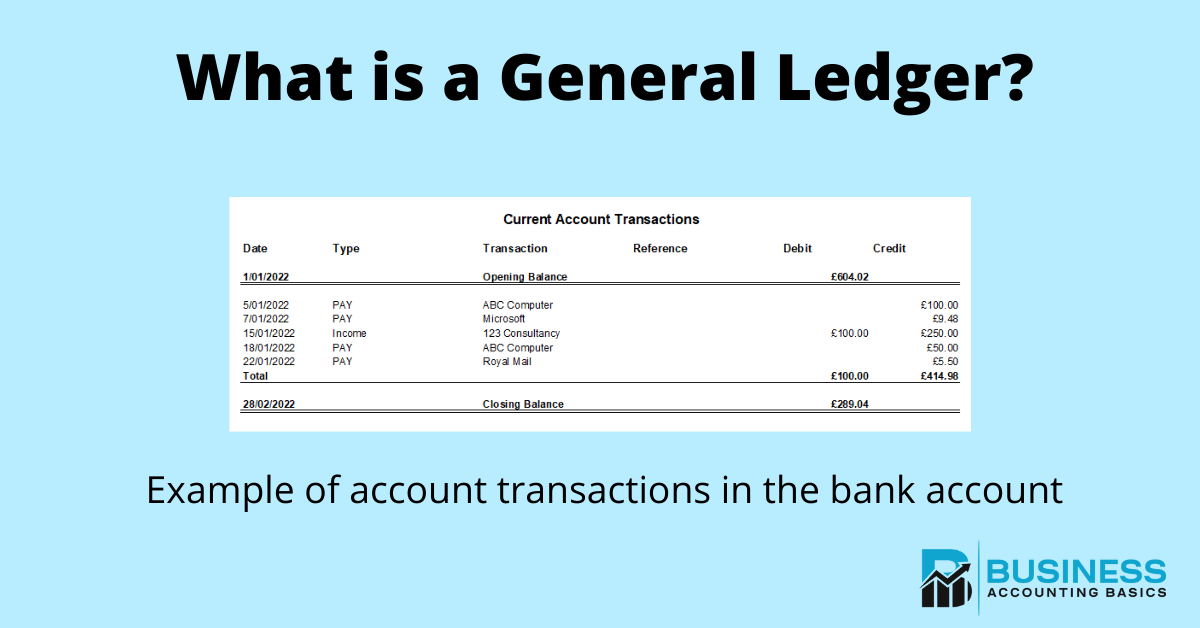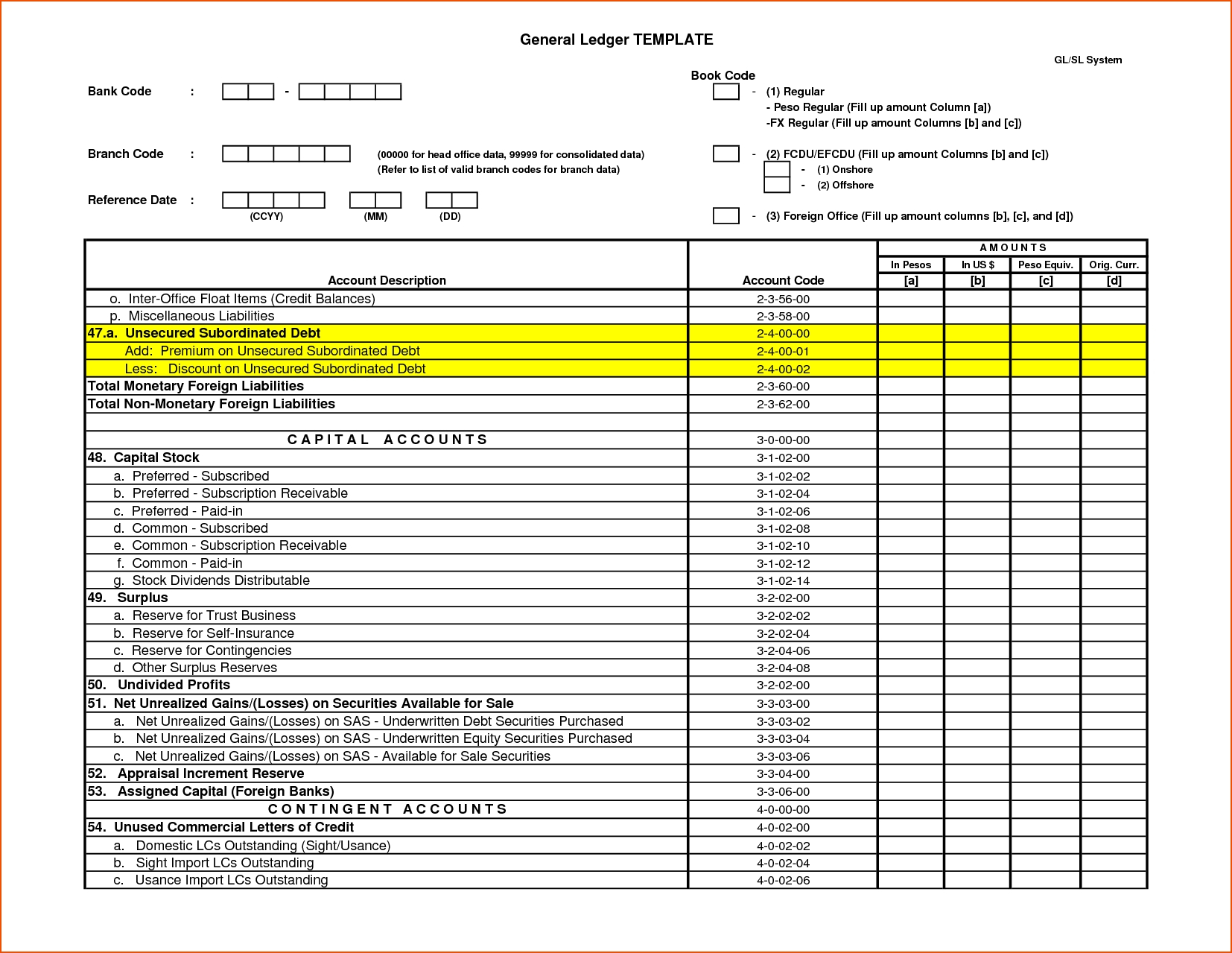
Therefore, you need to prepare various sub-ledgers providing the requisite details to prepare a general ledger. This journal entry would then be transferred to the respective ledger accounts as follows. A general ledger helps you to know the ultimate result of all the transactions that take place with regards to specific accounts on a given date.
- In these circumstances it is common to split off sections of the main ledger into separate subledgers.
- It is common to see the number of the transaction if it has been paid by check or entered in for tracking purposes.
- Now that you’ve learned more about what a general ledger is in accounting, you’ll be better able to provide your accountant with the information they need to keep your books balanced.
- This includes debits (money leaving your business) and credits (money coming into your business).
The accounting cycle
This equation states that the assets of your business are always equal to the sum of the owner’s capital and the claims of the outsiders. To better understand how a general ledger is used, let’s review the cash general ledger account of Centerfield Sporting Goods. You can select all segments for the selected ledger, anddefine conditions including account value ranges. We’ve gone in-depth on the general ledger but let’s hit the high points one last time.
Problem of General Ledger Account
It serves as the backbone of your accounting system, organizing your transactions into various accounts such as assets, liabilities, and revenue. However, reconciling individual account balances becomes extremely easy with online accounting software like QuickBooks. This feature automatically matches the transactions recorded in your books of accounts with the bank statement balances. A general ledger contains information related to different accounts, providing information that helps you in preparing your business’ financial statements, including income statements and balance sheets.
Small Business Ideas for Anyone Who Wants to Run Their Own Business

These then get recorded in your general ledger.Depending on how your GL is organized, this might be categorized into something called subledger. A subledger is a detailed record of transactions related to a particular financial account, like inventory or payroll. Every financial transaction that you record is called a journal entry, and those journal entries are kept in your general ledger. This means everything from bank statements to invoices are kept in one place, so you, your accountant, or your business partner don’t have to search other statements or records to put the pieces together. A general ledger is the foundation of a system employed by accountants to store and organize financial data used to create the firm’s financial statements.
Why are general ledgers important for small business accounting?
All financial statements like the income statement, balance sheet, and cash flow statement all draw upon the transaction records found in the general ledger. The next step in the general ledger and financial reporting cycle is to prepare an unadjusted trial balance. When going over all transactions in the GL and completing your trial balance, you will be able to see all of the accounts’ closing balances and child tax credit track down any errors, missed payments, or unusual activity. This gives you the chance to reconcile these errors before closing your books at the end of an accounting period. The GL serves as the basis for a company’s income statements, balance sheets, and cash flow statements. By keeping your general ledger up-to-date, stakeholders, investors and analysts can accurately assess the company’s performance.
The bottom line on general ledgers
It is helpful to remember that revenue, expenses and dividend accounts are zeroed out at the end of the accounting period since they are temporary. The general ledger or (“GL”) as most accountants call it, is a database that stores every individual transaction and journal entry. General ledger is the book that stores and updates all the accounts in the company when the transactions are recorded in the general journal. It is the set of accounts that contain all transactions in each account in the company. After the accounts are categorized by type, they are arranged in balance sheet order starting with assets, then liabilities, then equity accounts. These accounts do not carry over to the next accounting period since they close at each month’s end.
Alongside her accounting practice, Sandra is a Money and Life Coach for women in business. The following are the steps to a proper general ledger accounts reconciliation in detail. For instance, you could assign four-digit codes for all your accounts, or you could assign specific numbers to specific accounts. Operating expenses are mandatorily incurred expenses that are necessary in the day-to-day operations of your business. These are the expenses that you would not be able to carry out your core business operations without, these include rent, payroll, insurance, etc.
You can use the account balances in the general ledger to generate the trial balance, which lists every account and the current account balance. The dollar amount of total debits must equal total credits in the double-entry accounting system. Accounting ledgers are an essential part of a small business’ bookkeeping practices. As a small business owner, you need to be aware of all the transactions your business has completed in an accounting period. Owner’s equity is the portion of the business’s assets that you or your shareholders own. When your business records revenue from sales, this will increase owner’s equity because it means that the company has earned more money.
